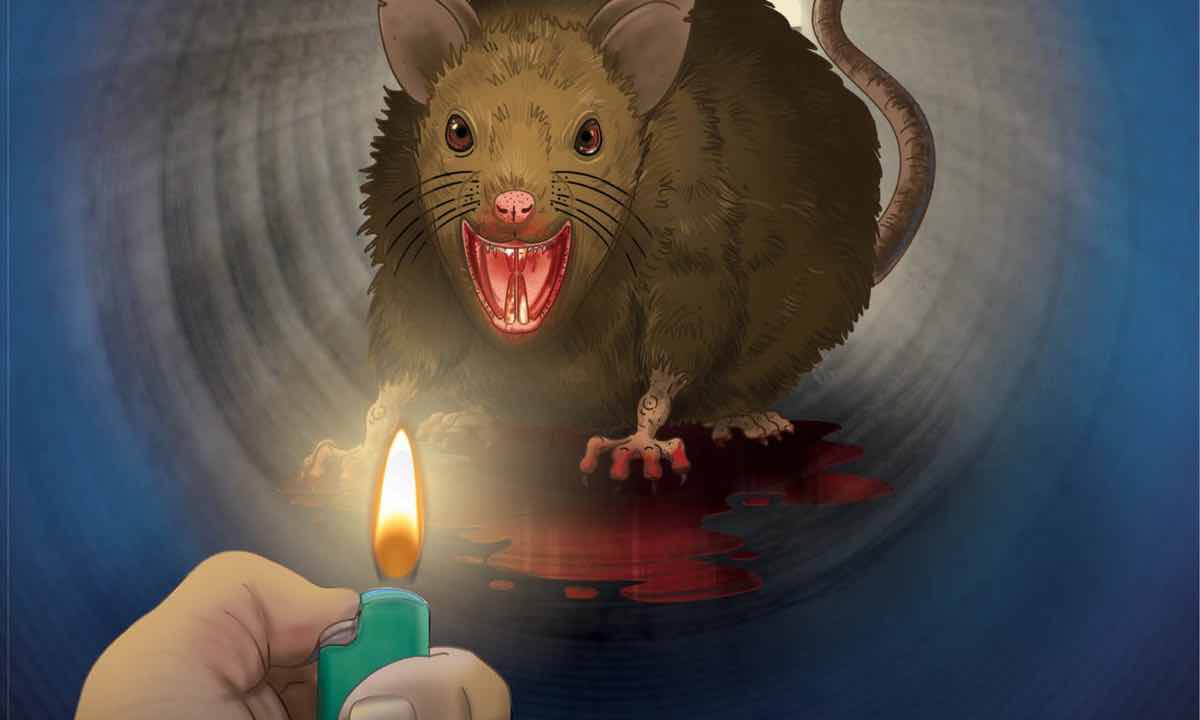So Ratstrike is my first novel that I’ve published, but it’s not the first novel I have written. That one’s coming out in a few months. I’ll keep the title secret for now. I do though have a horror novella, called Raven Hill, which is released on Amazon on 9th October 2023.
I had a long break from novel writing. When I returned to it, I didn’t just want to exhume my original attempt, which had gained me two literary agents but no publisher.
I decided instead to start afresh. In the UK, the current political hot potato was Brexit. Boris had allegedly got Brexit ‘done’, although millions of Remainers - of which I’m one - and likely more than a few Leavers doubted this was the case.
I can’t remember why I chose killer rats as the antagonist. I seem to recall James Herbert’s The Rats making a big splash when it came out. While I didn’t expect to reach such heady heights with my own modest novel, I felt that another rat horror was overdue.
Also, I was fascinated by Britain’s self-imposed isolation from Europe caused by Brexit. The UK’s exit from the EU threatened the Union too. I imagined Scotland breaking away first. My imagination started racing.
What if England truly was alone? Adrift in the Atlantic, friends with no-one? What if the reasons behind this exile weren’t political, but originated from a physical threat from nature?
A physical threat like a wild rat infestation. A biological insult so catastrophic, it causes near societal collapse and a retreat from the towns and cities. No-one will ever be safe again.
Within this post-apocalyptic nightmare, small communities of human survivors are forced to fend off daily attacks from packs of wild rats. Subsistence is at the mediaeval level. Homo sapiens are no longer the dominant species. Not in England, at least.
I regard myself as more of a pantser than a plotter. I usually start with a blank page and begin writing Chapter 1 without having much idea of where I’m heading. At some point, if I’m still enthused enough about the story, I’ll do some heavy thinking about the plot and where the story’s going before proceeding further.
I find first chapters notoriously hard to write. I’m sure I’m not alone in feeling this. They all end up going through some heavy-duty editing. Chapter 1 of Ratstrike was no exception. A young girl gets violently killed by a pack of rats as she walks along a deserted country road after dark.
I remember thinking after having finished the first draft of Chapter 1 that there was no way I could just string together a load of scenes of humans being violently attacked by packs of rats. It would bore me - and by extension - the reader, to write such a novel. Somehow the threat had to escalate, and so I decided that these ferocious rats would not only grow bigger throughout the novel’s spine of action, but mutate too in some cases.
From a few of the reviews I received, this idea went down like a rat turd in a Caesar salad, but I don’t regret the decision. I could not have finished the novel otherwise. That said, I scrubbed some of the more exotic varieties of mutant from the December 2022 first edition, and tightened the book’s rat genus. I also removed some of the bulky science and improved the ending. This resulted in a more streamlined novel, reduced from 87,000 to 82,000 words, which I launched on Amazon in June 2023 with a fresh cover.
So, live and learn. I’m just starting out on my journey as a self-published novelist. I’m bound to make a few mistakes en route.



